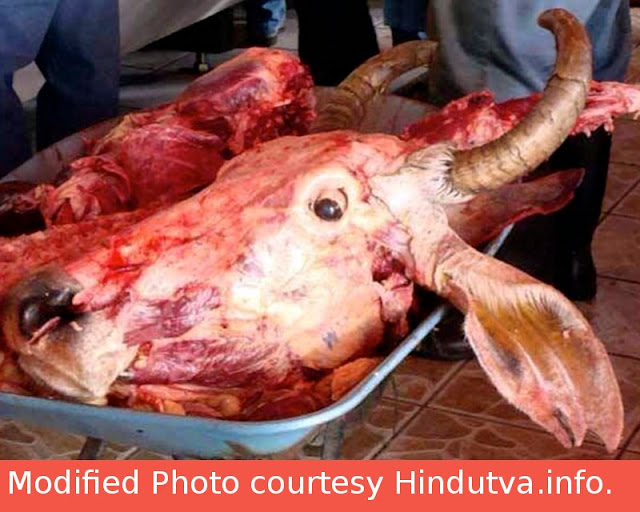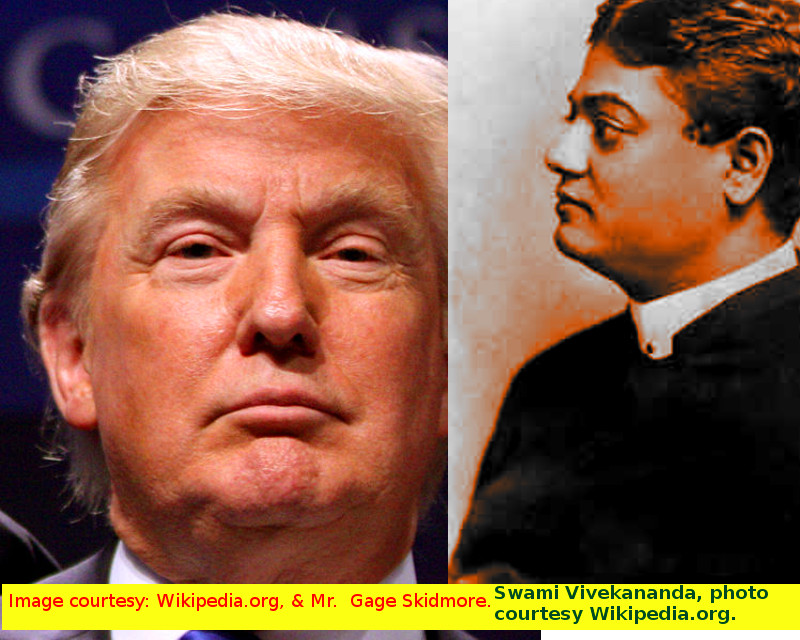#121 VIVEKANANDA AND SUNDARA RAMA IYER
Mr. K. Sundara Rama Iyer was resident of Trivandrum. He was tutor for Prince Martanda Varma, nephew of the ruler of Travancore (Kerala). Vivekananda visited Kerala in Dec. 1892. He stayed nine days with Mr. Sundararama Iyer. The following is a quote from the reminiscences of Mr. Iyer in his conversation with Vivekananda.
BLOGGER'S REVIEW
*Where is the address of mercy, when monks themselves crave for fish and flesh?
*Nearly 100% of Indian athletes and sports persons consume meat. Yet they lack the physical stamina to win medals in Olympic Games! What would Vivekananda have said, had he been present: You have not eaten beef?
"... The Swami also told me that he had long taken no fish food, as the South Indian Brahmins whose guest he had been throughout his South Indian tour were forbidden both fish and flesh, and would fain avail himself of this opportunity to have his accustomed fare. I at once expressed my loathing for the taking of fish or flesh as food. The Swami said in reply that the ancient Brahmins of India were accustomed to take meal and even beef and were called upon to kill cows and other animals in yajnas or for giving madhuparka to guests. He also held that the introduction and spread of Buddhism led to the gradual discontinuance of flesh as food, though the Hindu shastras (scriptures) had always expressed a theoretical preference for those who avoided the use of flesh-foods, and that the disfavour into which flesh had fallen was one of the chief causes of the gradual decline of the national strength, and the final overthrow of the national independence of the united ancient Hindu races and states of India. He informed me, at the same time, that in recent years Bengalis had, as a community, begun to use freely animal food of several kinds and that they generally got a Brahmin to sprinkle a little water consecrated by the utterance of a few mantras over a whole flock of sheep and then, without any further qualms of religious conscience, proceeded to hand, draw, and quarter them. The Swami's opinion, at least as expressed in conversation with me, was that the Hindus must freely take to the use of animal food if India was to at all cope with the rest of the world in the present race for power and predominance among the world's communities, whether within the British empire, or beyond its limits. I, as a Brahmin of strong orthodox leanings, expressed my entire dissent from his views and held that the Vedic religion had alone taught to man his kinship and unity with nature, that man should not yield to the play of sensuous cravings or the narrow passion for political dominance. The ennobling gospel of universal mercy which had been the unique possession of the Hindus, especially of the Brahmins of South India, should never be abandoned as mistaken, out of date, or uncivilized, and that the world can and ought to make a great ethical advance by adopting a humane diet, and also that no petty considerations of national strength or revival should prevail against the adoption of a policy of justice and humanity cowards our dumb brother-jivas of the brute creation. Knowing, as I fully did, the Swami's views on this question, I was not surprised to learn that, while in America he had been in the habit of taking animal food, and I think he treated with silent contempt the denunciations and calumnies directed against him on this account. ..."
BLOGGER'S REVIEW
*Where is the address of mercy, when monks themselves crave for fish and flesh?
*Nearly 100% of Indian athletes and sports persons consume meat. Yet they lack the physical stamina to win medals in Olympic Games! What would Vivekananda have said, had he been present: You have not eaten beef?



Comments